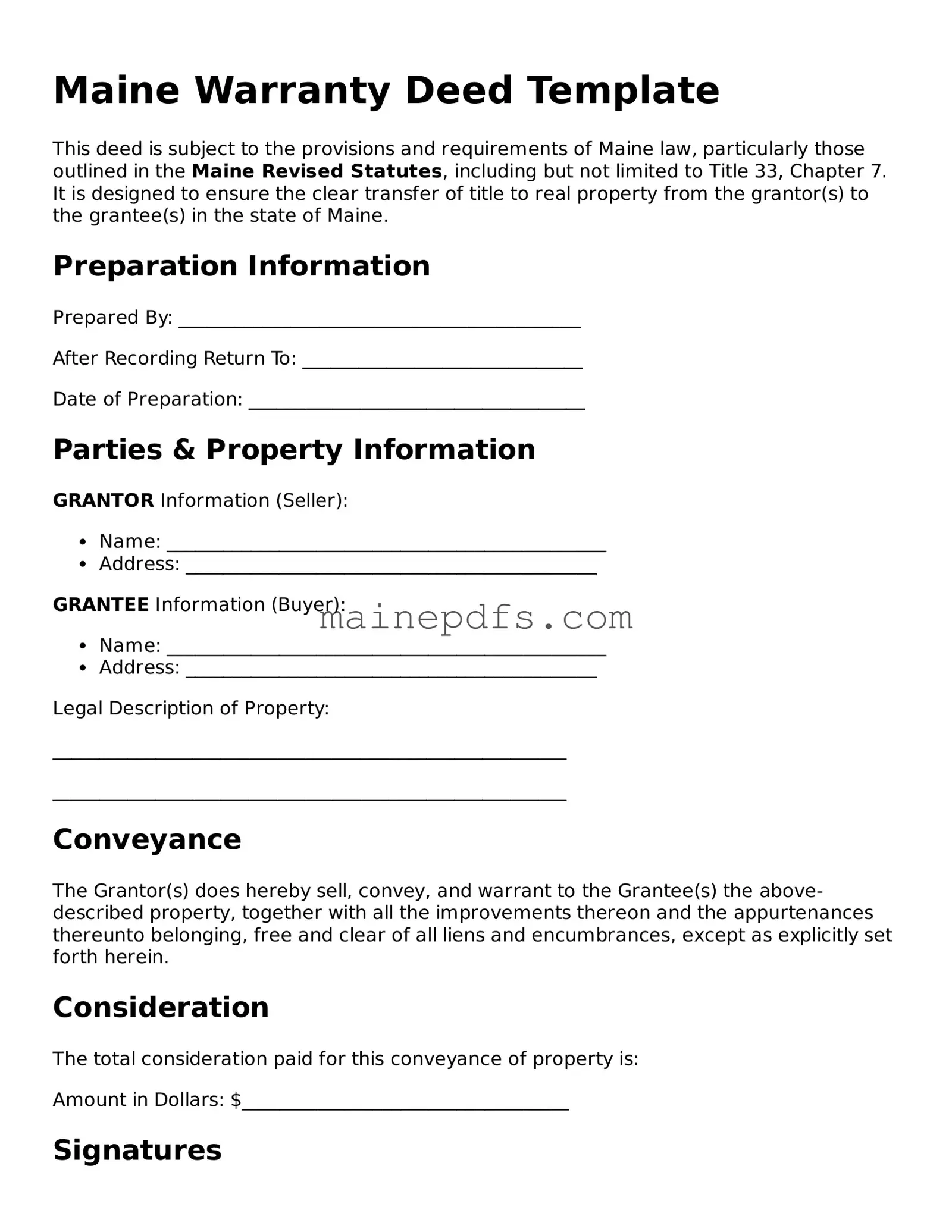Attorney-Approved Maine Deed Template
A Maine Deed form is a legal document used to transfer property ownership from one person to another in the state of Maine. It is essential in ensuring the transaction is recognized by law and protects both parties involved. To secure your property rights without a hassle, fill out the form by clicking the button below.
Make My Document Online

Attorney-Approved Maine Deed Template
Make My Document Online

Make My Document Online
or
Click for PDF Form
A few steps left to finish this form
Finish Deed online — no paper, no scanner needed.